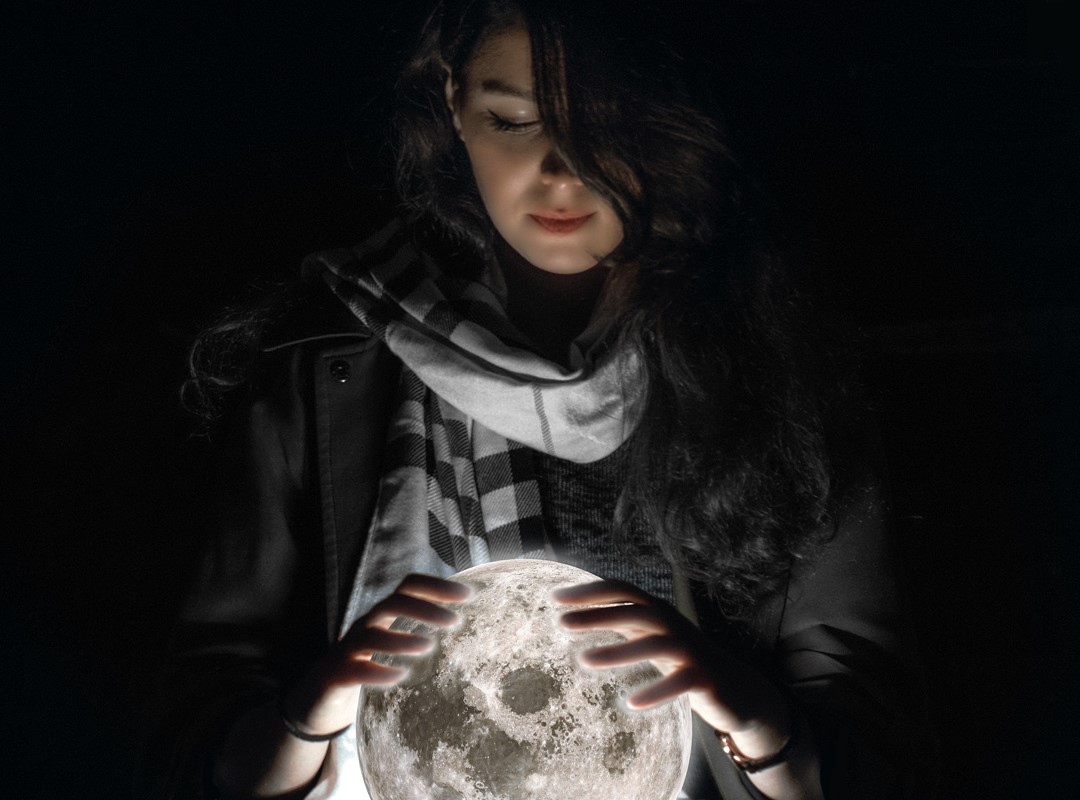Our closest celestial companion, the Moon, has inspired generations of poets and authors to muse about nocturnal love and lunacy. But the effects of the Moon are not mere metaphysical speculation or romantic hope.
Several scientific studies have pointed to measurable effects in human society. How Does the Moon Affect Human is a question of keen interest for habits and lifestyle. The otherworldly orb may have more in store than we knew.

Heaven’s Dark Horse
Since before NASA’s Apollo 11 turned the Moon from an icon of our dreams into a place we can visit, we’ve taken its presence in the sky for granted. But let’s imagine for a moment that it wasn’t there.
Nights would be dark as void, making it impossible for insects, birds, and people to navigate without artificial light. Since half of all 10,000 bird species are migratory, millions of starlings, geese, and flamingos would be flying in circles.
If nocturnal animals only had sparks from the stars to rely on at night, they would be seriously hampered in their survival. Aardvarks, bandicoots, and kinkajous have few defenses to escape predators and hunters during the daytime, so moonlight is essential for their existence.
The Moon is so powerful it drags entire oceans across the seafloor. Without the tides, many fish and crustacean species would be impeded in their reproduction. Also, coral eggs love to go swimming in high tide.
It’s also possible that our concept of time wouldn’t have been as strongly developed without the lunar cycle breaking up the night’s monotony.
The Empress of Emotiveness
We see and feel the Sun every day. It’s among the first things children put on paper. Without it, life can’t find a way. The study of the moon can be the answer to “How Does the Moon Affect Human?” . The Moon is its pale counterpart.
Its texture, contrast, and movement set it apart. Cleopatra, Socrates, Rumi, and the Tyrannosaurus rex — the same levitating disk in the night sky was constant for all of them.
In art, the Moon often represents the zenith of loneliness. In the 1988 film “The Adventures of Baron Munchausen,” a lunatic king played by Robin Williams was banished to live out the rest of his days on the Moon. A Dutch expression translates to “walk to the Moon, meaning “get lost.”
For many writers and artists throughout history, a Full Moon in the face of desolation.
Yet our biggest satellite also drew the first lines of connectivity among all humans and is a symbol of achievable dreams. Not only did humanity plant a flag on its surface in 1969, but also terrestrial explorers relied on it to navigate when they were first mapping the globe.
A Religious Trailblazer
Sumerians worshipped the Moon-god Nanna in Mesopotamia over 3,000 years ago, and later the emblem figured into Roman goddess Diana’s crescent tiara. The ancient world has done lot to know How Does the Moon Affect Human? In ancient Egypt, the Moon was known as “the one that repeats its form.” It stood for rejuvenation and accompanied depictions of Horus.
As a religious symbol today, the Moon most directly influences the daily life of Muslims. This originated in pre-Islamic Arabia, where travel along trade routes was chiefly by night and the Moon and the stars were used for desert navigation.
The Moon has represented spiritual guidance ever since. Today, the lunar and calendar month coincide in the Muslim calendar, and the new moon marks the beginning of the Eid al-Fitr festivities at the end of Ramadan.
The Moon card is also likely to turn up in your daily tarot reading.
Science Catches Up
The Moon influences the deeper levels of the human mind, or so suspected psychologist Carl Jung. Despite the fact that numerous scientific studies report no correlation between the lunar cycle and human behavior, there are some who do find an effect. Let’s know some published pieces of evidence and findings How Does the Moon Affect Human in past and present times as below. These findings and proofs are some of the scientific facts to be noted
One study reports statistically significant evidence that the period of decreasing illumination immediately after the full Moon may precipitate ovulation.
A Nepali study indicated that women who got pregnant during a full Moon were significantly more likely to have baby boys. This correlation is supported by various small-scale studies.
The suggestion that our biological rhythms are intrinsically linked to circadian, seasonal, and lunar cycles is supported by a few sleep studies. One found that around the time of a Full Moon, people take five minutes longer to fall asleep and sleep 20 minutes less — even in a completely dark room.
In the study, delta brainwaves typical of deep REM sleep diminished and melatonin levels dropped.
Other studies make the words “lunacy,” “loony,” and “moonstruck” live up to their names. For some, morality seems to bend in the moonlight. The incidence of crime, homicide, suicide and animal bites was higher on full-moon days in several studies.
Correlations with heart failure have also been found, as have those with doctor consultation visits.
Coming Full Circle
How Does the Moon Affect Human lifestyle also depend on the moon moving to full circle? The verdict is still out when it comes to the effects of the Moon on human behavior. It seems plausible that, like all creatures, our genes have been programmed in some way or another by natural rhythms, including the lunar cycle.
Research is ongoing to prevent intellectual eclipse and unravel the mysteries of the “Transylvania hypothesis” and “circalunar rhythmicity” in general. The time will show the exact thing in coming future
Conclusion
Whatever the case may be, the Moon will continue to feature prominently in art, science, and religion — and pervade as a celestial body heavy with symbolism and mystery. How Does the Moon Affect Human lifestyle and habit is still under study and mystery to be provoked.
